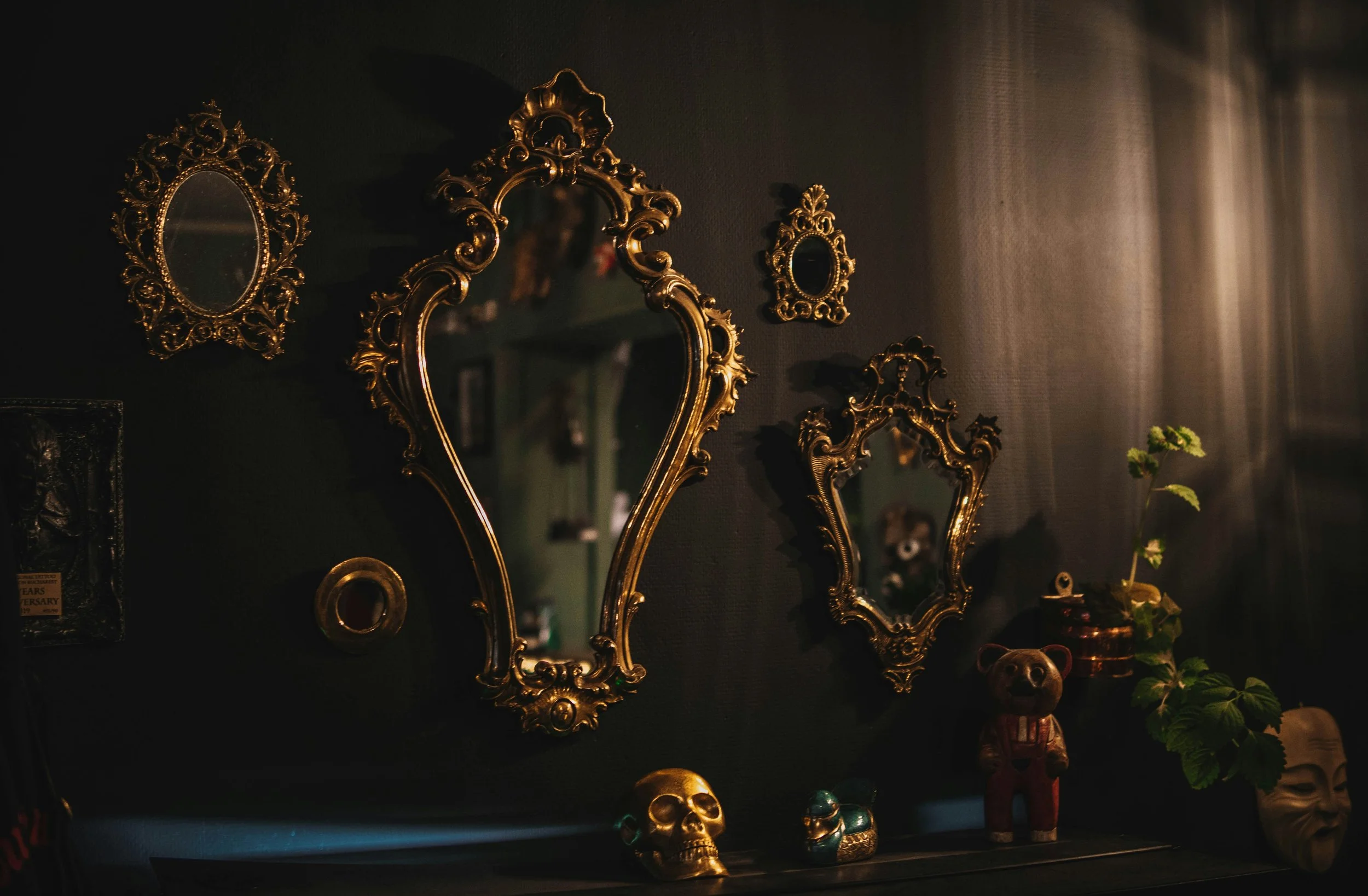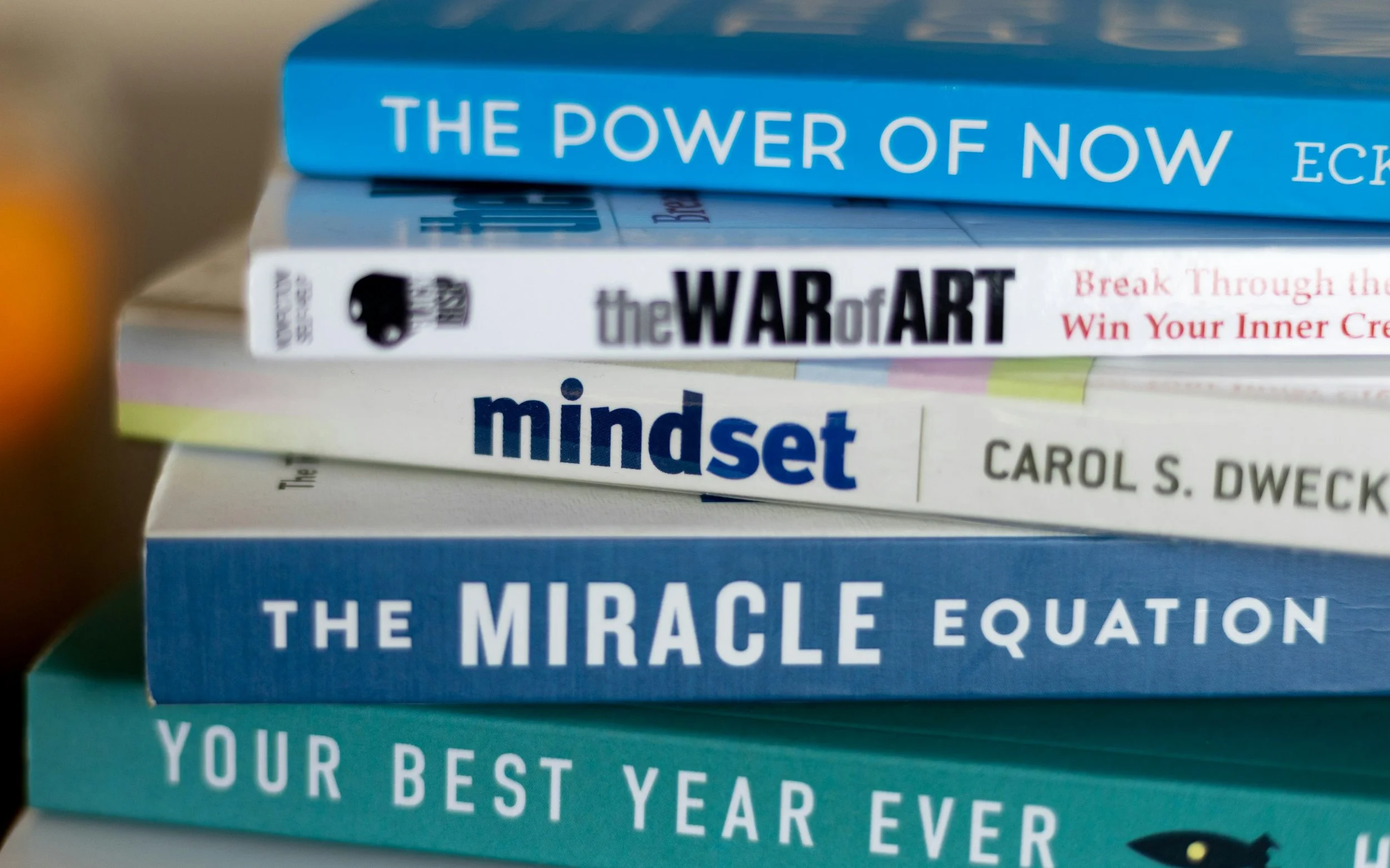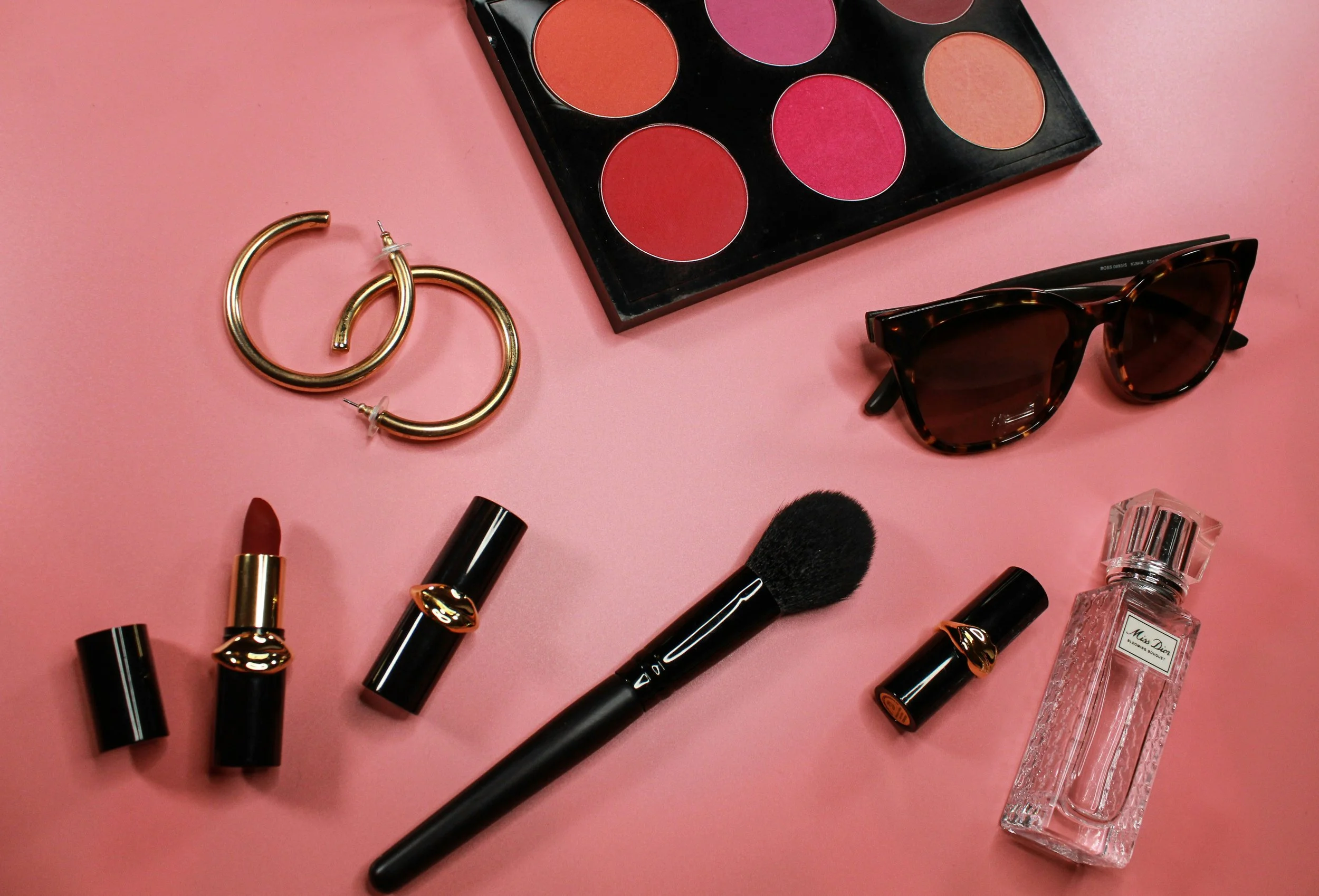What It Means if You’re Worried about Boredom in Early Retirement
December 20, 2021
The Wealth Planner
The only personal finance tool on the market that’s designed to transform your plan into a path to financial independence.
Get The Planner
Join 200,000 other people interested in money, power, culture, and class.
Subscribe Now
Biggest Finance Newsletter for Women
More than 10 million downloads and new episodes every Wednesday.
The Money with Katie Show
Recommended Posts
Before “Money with Katie” was a thing, O.G. readers will recall that I had an eponymous blog that featured every life hot take under the sun – my content topics knew no bounds.
It was HSA tips and skincare peppered with thoughts on relationships and “adulting,” which was a pretty accurate reflection of my interests at the time.
(Who would’ve thought the HSA tips section would emerge the victor for a personal finance-only site?)
During that time, I was in the gap between finishing my post-grad summer internship and starting full-time work at the same company. Because companies with tens of thousands of employees have dinosaur-sized compliance departments and background checks powered by Windows ‘87, there were about three weeks between the last day of my internship and the start of my full-time job.
Whenever I had long breaks in college, I would look to what was coming next and prepare: Getting a jump on a new class’s syllabus reading, laying the groundwork for another semester in an extracurricular… there always seemed to be something to do during breaks, even the long ones.
Not during this break.
During this break, I was rudderless.
I had no idea what my full-time job would entail because I hadn’t yet seen a real job description. I didn’t have a company computer or access to any of my work. Side hustles weren’t yet a twinkle in my eye (because I was big ballin’ on $52,000/year, remember? I didn’t need no side hustle!), so I didn’t have work outside of work to keep me busy, either.
I spent the first week of my three-week-long no-man’s-land furnishing my new apartment and learning how to use an electric stove from the late 1990s.
By the end of that week, I was ready to pull my hair out.
Who was I, outside the confines of responsibility? It was only three weeks, but it felt like an entire summer passed as the days crawled by more or less the same.
The paradox of free time
I wrote a blog post at the time about how free time is valued so highly for your average blue- or white-collar worker – we work all week looking forward to Friday and the sweet, unencumbered bliss of 48 hours to spend however we please.
But endless free time? Unpunctuated free time? Free time that expands to the horizon? It’s unnerving.
It forces us to ask ourselves:
Who am I without the things that I thought made me “me”?
It’s funny, in retrospect, that I was losing my mind with three weeks of time off, but would soon become obsessed with the FI/RE movement after only six full months of working full-time and realizing, Wait, this ain’t it.
But that period taught me something really crucial: Even at 22, I was so focused on making a living that I didn’t really know what I wanted for my life. What were my hobbies? What did I do for fun? Who did I want to be?
I had never thought deeply about these questions before because I never needed to.
High school and college were 8 straight years of studying and extracurriculars (and then partying on the weekends to try to decompress), and the post-grad rat race to find gainful employment was all-consuming psychologically and emotionally.
When I got my first full-time job, I felt like that was it. Box checked! Accomplishment complete! Time to clock in for 40 years then hit the Florida condo circuit.
My identity, in a lot of ways, became contingent upon where I could get a job offer or how full my social calendar was for the week.
I didn’t really have time to stop and slow down to reflect on who (and what) I wanted to be – I was up early for work and focused on impressing enough of the Real Adults™ around me for 9 hours a day.
After work, I’d have to make the very difficult decision between heading to a workout class or happy hour, but I was almost always at one or the other – rarely did I go home after work and just be.
By the time my day would end, I’d flop down on my bed, watch an episode or two on Netflix, and pass out. Repeat. Introspection? Nah.
Having 3 weeks of seemingly endless free time forced me to take an uncomfortable look at myself
To make matters more hilarious, the few close friends I had in Dallas at the time were abroad for almost the entire duration of my Funemployment – so I couldn’t fully distract myself with socializing. And besides, all my other new friends already worked full-time. They weren’t interested in hitting the pool at noon on a Wednesday, because they were at the office.
I’ll always think fondly of that period, though, because it was the first time in my adult life in which I realized a few crucial truths about myself:
-
I feel very uncomfortable just “being” with myself without producing something.
-
I like to read, though I had totally de-prioritized it as a pastime in my post-grad hustle to find a job and a boyfriend (I think I went to Half Price Books every single day for two weeks).
-
I like to write (duh – but this had also taken a backseat).
-
I didn’t really have any hobbies – but this period planted the seed that eventually grew into my decision to become a fitness instructor a few months later.
Had I been thrown immediately into full-time work without this seemingly endless expanse of time, I probably wouldn’t have rediscovered a love of reading or writing – I also probably wouldn’t have realized that a really fun way for me to pass the time was exercising, and that I loved group fitness.
Time and space creates the (scary) brain bandwidth necessary to actually know ourselves
Whenever people say they’d be bored if they didn’t have their full-time job, what I hear is that they’re afraid to be with themselves without the shield of the thing that consumes 40+ hours of their waking lives each week.
It’s different than saying you love your job and wouldn’t want to quit – the fear of boredom is the recognition and acknowledgment that, in all the hustle and drive to create a career, we may not have done a very good job of creating a life.
In the United States, we connect so strongly with our roles at work (our employer, our title, our job description) that we tend to melt behind it and use it as an identity placebo. You see this in the way we speak to someone new: “What do you do?”
The implicit intent behind the question is to ask what the person does for work. How strange is that? Blame the Puritans or late-stage Capitalism, but somewhere along the line, it’s almost like the religious foundation of this country forgot that God used labor as punishment in the Bible.
Work creates (sometimes valid) excuses to avoid discovering what we actually want
Pop quiz: How do you feel when you come home on a Monday evening after work? How about after you make dinner, walk the dog, put the kids to sleep, and clean the kitchen?
Do you (a) feel like gearing up to try a new, unfamiliar hobby that’s going to consume more of your time and energy? Or do you (b) elect for the Kabernet-and-Kardashians Kombo instead? I know which one I’d pick 5 days a week, and it sure ain’t the one that requires more time and energy.
Having a job fills up enough space and consumes enough energy that it leaves us with very little left – and I think a lot of us get really comfortable in that rhythm. Work, chill, sleep, psych yourself up for the occasional night out, feel hungover for the next 72 hours, repeat. “I don’t need to find hobbies or pass-times, because I have no time.” It’s true, to some extent, but in the important ways, it’s not.
At the risk of sounding too much like a “Careers force you into a zombie-like stalk through life,” FI trope, time-consuming full-time jobs insulate us from needing to truly know ourselves – that’s why so many retirees (early or otherwise) experience aimlessness and a loss of identity after walking away from traditional full-time employment.
Dedicating the time and energy to finding and developing interests
When’s the last time somebody asked you what you’re interested in?
My friends, our interests are going to save us – especially in a post-work world.
It’s a hard question to answer. What interests you? What piques your curiosity?
“Uh, I’m interested in drinking wine at 2 PM.”
Great! What about a wine-tasting trip? A wine of the month club that you start with your friends, where you pick one night a month that you gather for swanky cheese boards, wines with funky names, and shit-talking Pete Davidson’s newest girlfriend? (Except you, Kim. Never.)
The issue, I think, is that most of us play our “I have a full-time job and I’m too tired to give a shit about anything else” card way too liberally – especially those of us who may prioritize work (and earning) to expedite our careers and reach the finish line.
Ironically, we’re the ones who need to indulge our interests the most. (And no, Katie, “money” is not an interest that counts here. Try again. )
The million-dollar question
Sometimes I ask myself what I’d do if I woke up tomorrow with millions of dollars in my bank account.
Goal reached! Early retirement attained!
What if it were more money than you could ever need? What if it were $20M? $200M?
(Seriously – think of the amount that would make you never worry about money again and envision it sitting in your brokerage account.)
Great. Now what?
Do you quit your job? You don’t need the money. You don’t need to earn another penny for as long as you live.
Now what?
It’s hard to answer. I think about this a lot, and I’ve challenged myself to come up with an answer. I think I’ve figured it out:
I’d start teaching fitness again. I miss that environment and the unique way it challenged me. Because the money wouldn’t matter, I’d teach wherever interested me, not wherever had the highest instructor pay or most prestige. I’ve never taught fitness without also having a full-time job, and I think I’d really enjoy it as my only “work.”
I also think I’d try to hire coaches and teachers for one-on-one lessons in three things that interest (but elude) me: Chess, piano, and figure-skating.
In the summer? Tennis and swimming.
I genuinely think I’d fill my schedule with lessons – because I enjoy learning and improving, but I’d want to do so within the confines of hobbies where the rules are made up and the points don’t matter. If there’s even a chance that something could be taken to a ridiculous, competitive, and monetized level, I’d fall right back into that pattern – so a slew of truly “just for shiggles” hobbies are necessary for me.
This hypothetical is scary, because it strips away the security blanket of our goals and affiliations: Who are you without your output?
This is the question we have to get comfortable asking – and not just asking, but acting on.
Otherwise, early retirement is an existential crisis waiting to happen
If you don’t know who you are outside your work, quitting can feel like a total and complete loss of identity.
It forces you to ask yourself the scariest question out there: What’s the point?
I don’t know about you, but I want to figure it out long before I put in two weeks’ notice.
Investing for early retirement
Betterment is one of the best tools that I’ve recommended for investing for the future, because it’s a one-stop shop – you can invest for early retirement, regular retirement, and major purchases in one, tax-coordinated place.
You can opt for a portfolio that’s preselected by experts or customize it. My favorite thing about Betterment is their tilt toward value, which is a philosophy that I first learned from Paul Merriman in his book “We’re Talking Millions.”
You can get started with Betterment here.
Disclaimer, since we’re talking about investing
Investing involves risk of loss and performance not guaranteed. Just my opinions, not advice. #sponsored
You may also like these posts:
Featured
Paragraph
Looking for something?
Search all how-to, essays, and podcast episodes.
Explore
While I love diving into investing- and tax law-related data, I am not a financial professional. This is not financial advice, investing advice, or tax advice. The information on this website is for informational and recreational purposes only. Investment products discussed (ETFs, index funds, etc.) are for illustrative purposes only. It is not a recommendation to buy, sell, or otherwise transact in any of the products mentioned. Do your own due diligence. Past performance does not guarantee future returns.
Money with Katie, LLC.
Terms & Conditions | Privacy Policy
This Site Was Built by Brand Good Time




